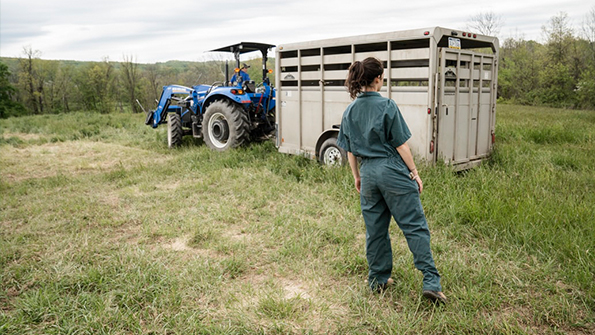
In times when a pandemic has crippled the global economy and our health, it is definitely the moment to plan our future more wisely, in order to grow in resilience and let opportunities arise organically.
Talking about organic matters the European Commission, after what the Farm to Fork strategy (F2F) is promised to look like, seems very keen to promote a stronger, more resilient food production in Europe. This would mean also counting on young farmers and making use of innovative technologies. Nonetheless, as the European Council of Young Farmers (CEJA) has underlined in a statement on July 31st, there is the need for strong investments in Europe in order to apply and undertake the appropriate management choices. CEJA President Jannes Maes stated there is a need for a toolbox “as broad as possible” to make this transition happen. “The larger you make this toolbox, the easier is for different types of farmers to find the right tools to do their part,” he said.
In fact, the fear from CEJA as of other institutions is that the European Commission is focusing largely on R&D, without properly training and assisting young – or any – farmers in the practical implementation of those new technologies and innovations. The Italian farmers’ association Coldiretti Giovani Impresa, is also welcoming the European Commission F2F initiatives, but adds that an increased sustainability “would be difficult without the right financial and political tools.”
A first demonstration of such EU interest, is the decision of investing approximately €200 billion in order to inhabitants of the rural areas to access to a broadband of at least 100 megabits per second – this according to Harald Gruber, the projects head of division of digital infrastructure at the European Investment Bank (EIB).
Digitalization and investment in the rural areas is seen as a priority in order to obtain a more sustainable agriculture and to mitigate climate change, topics at the core of F2F and the Green Deal, which is also expected to be starting in the next period. The EU commissioner for Agriculture Janusz Wojciechowsk, in an event organized by EURACTIV on July 9th, encourages the creation of “smart villages”, which, thanks to fast broad banding, are expected to become stronger in areas such as precision farming. “The availability of fast and reliable internet connection in rural areas is, therefore, crucial to enable that development of all future smart solutions for our agriculture and rural business,” he said.
So, a technological revolution seems what is to be expected in rural Europe for the next months. The question is, COVID-19 and funding discussions included, are we ready to go along this path yet?



